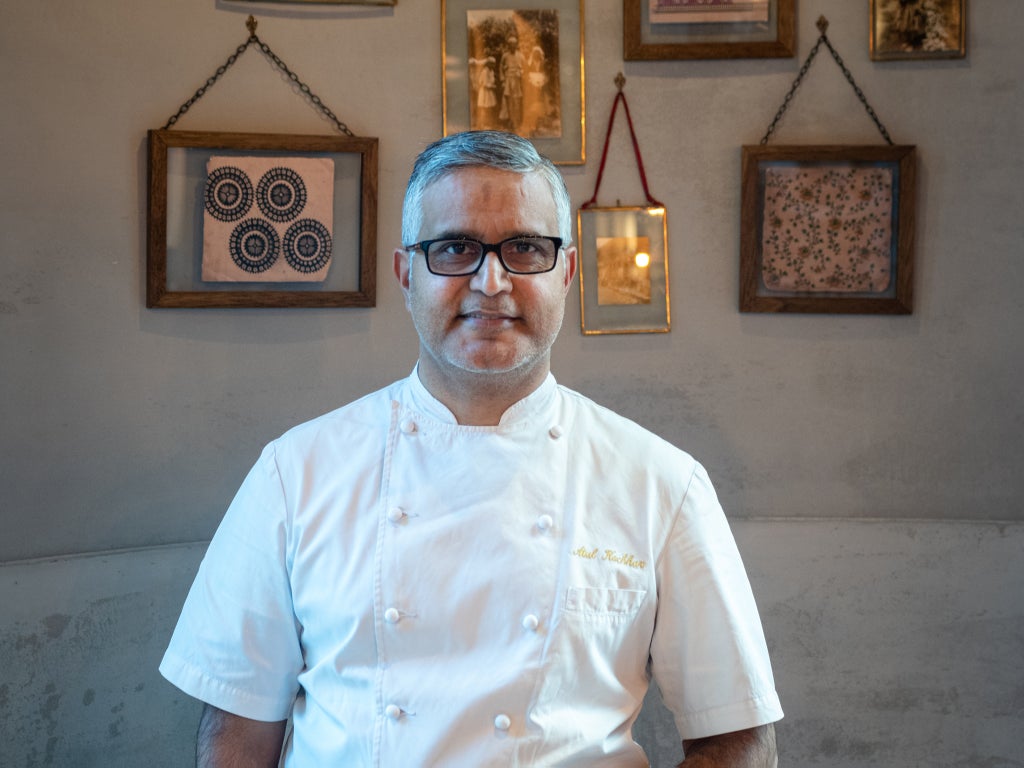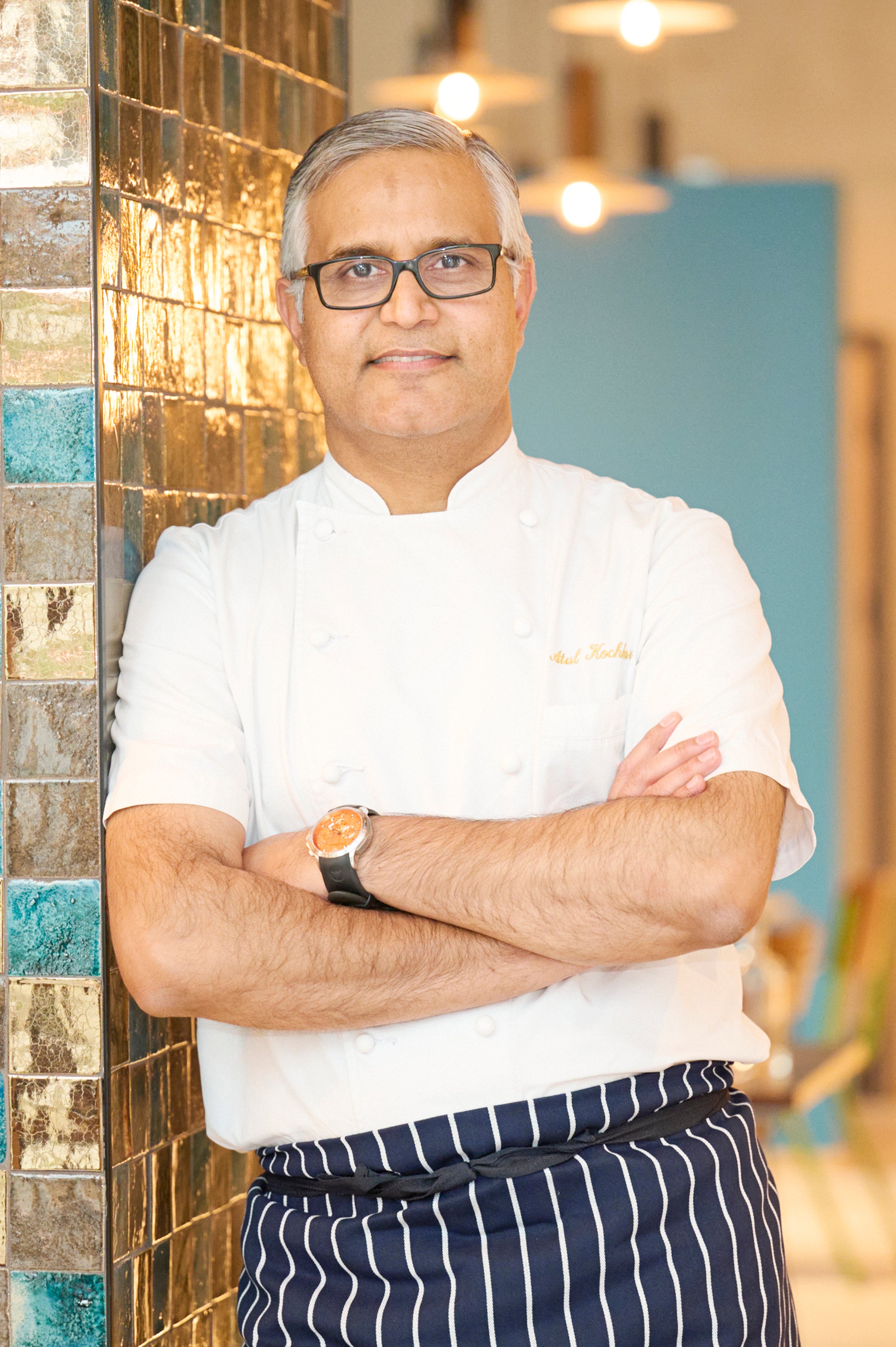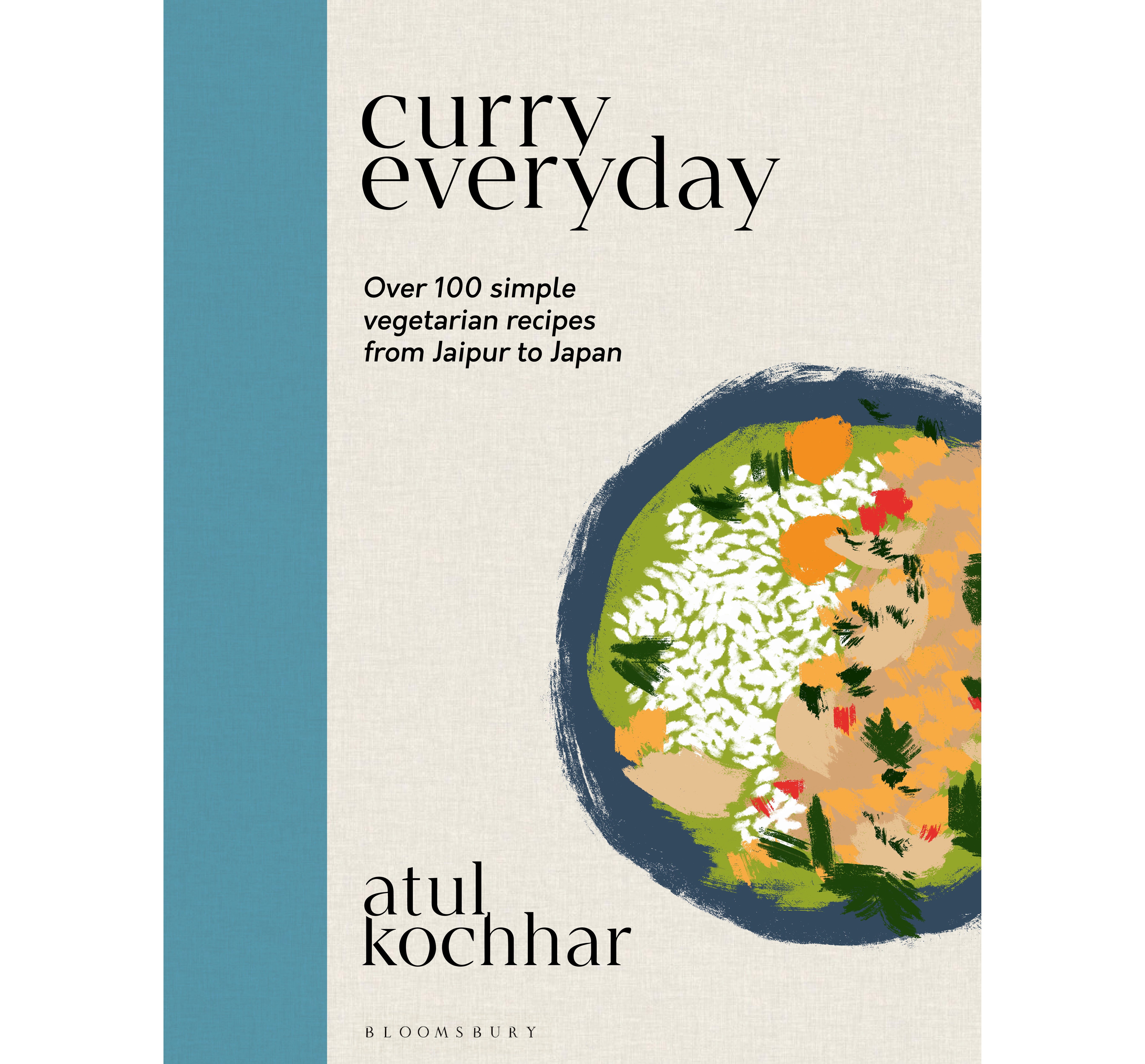
Atul Kochhar wants us to step away from shop-bought curry paste. “You honestly don’t need the paste in the supermarket – please don’t buy it, even if my name is on it!”
Besides – the trick to cooking a good curry from scratch, he believes, is simplicity. “Don’t go for very complicated recipes,” says the Indian Michelin-starred chef. “Complicated recipes are generally the creation of, sadly, chefs like me who want to look good and put in too many ingredients. Whereas if you ask any Indian mother or mother of the Indian subcontinent, she will tell you: four or five ingredients only.”
It’s why his new cookbook, Curry Everyday, is packed with shorter, easy-to-follow recipes, and with inspiration taken much further than just India – from Cambodia to Kenya, Afghanistan to the Maldives – and they’re all vegetarian.

The 52-year-old only eats meat twice a week, and when it comes to vegetables, his late father’s influence was huge. “I always say I have learned most of the cookery from my father, and a little bit from chef school. His way of spicing things and handling vegetables was quite unique. He was just a magician with flavours,” the dad-of-two says.
“He was an orphan. He lost his parents at a very young age and I think he had to learn cooking very young. I adored his way of cooking and I often try to copy it – most of the time unsuccessfully, but I do try.”
Kochhar was the first Indian chef to ever win a Michelin star, and is often credited with elevating Indian food to a fine dining level. He says it’s “very heart-warming to see” how people in Britain have embraced Indian-inspired food and made it part of their own culture. “I think more and more people cook and eat curry at home now than ever before.”
Immigrating to the UK in 1994, he says: “Wholeheartedly I have become ‘British-Indian’ and people asked me, ‘What’s your food?’ I’m proud to say I call my food British-Indian. [It] has grown very different from how my contemporaries are cooking in New Delhi or Mumbai. This is me, this is how I cook, this is what I love.”
Before he arrived in the UK, Kochhar says he was “pretty naïve” about food across the globe. “Growing up, the economics was such that you had to buy locally. India is a very large country, making food travel from one place to another was kind of unthinkable, to be honest, so you had to rely on what’s in season and locally available.”
But he says it “opened his eyes” to the agriculture of the UK. “I realised the great produce this country has as well. We may not be great at growing tomatoes and basil, but this country is great when it comes to root vegetables.” And these are perfect for vegetarian curries, he says. “Anything from carrots to turnips to parsnips, you name it, I experiment with all the combinations of the different types of vegetables we have in this country. I love it, I think it’s amazing. There’s fantastic cabbage and cauliflower as well.”
And when you cook veg in season, “Mother Nature does 80 per cent of the job, and I only have to do 20 per cent”.
So what does his 86-year-old mum (who still lives in his hometown in India) think of his food now? “She enjoys what I cook, but I often cook dishes she used to cook for me – and it’s a cheeky competition between mother and son. She still verifies dishes, she says, ‘You’re getting there, you’ll learn one day’,” he says, smiling.
His mum originally wanted him to be a doctor. “I always say as a joke, Indian families can be quite persuasive when it comes to the education of their children.” To appease his “strict” mother, he applied for medical school. “Sadly I got the placement, I was really hoping I wouldn’t get the place!” he laughs. Thankfully, his parents agreed he would be happier at cookery school.
Awarded his first Michelin star in 2001 at London restaurant Tamarind, he went on to open his own restaurant, Benares, where he won his second star. But his career hasn’t been without controversy – he had to deny he was Islamophobic in 2018 after sending a tweet to Priyanka Chopra about her TV show Quantico, claiming Islam had “terrorised” Hindus for 2,000 years. Kochhar apologised the following day and acknowledged his inaccuracy, and Chopra apologised for any offence caused by the storyline depicting a terror plot from Indian Hindu nationalists. But the incident resulted in Kochhar having to part ways with Benares and the JW Marriot Marquis hotel in Dubai.

“I never had any bone like that in me,” he says now, four years on, saying he had been shocked a “small mistake would land you in trouble”, and it was a “very tough” time for him and his family (he has two teenagers).
Kochhar has gone on to open more restaurants since (he currently has eight – the latest, Riwaz, opened in February). “I know who I am and what I’m made of, and I’ll stand again and work again and make it happen,” Kochhar says. “My quest to open more restaurants is an answer [to those] who took away my 18 years of hard work.”
His enduring success is down to expanding our perceptions of British-Indian food. “I was brave to break the boundaries, I didn’t see any culinary borders, they were quite blurred for me,” he says.
“I thought if Gordon Ramsay can do it, so can I – maybe I landed a Michelin star because of that. That helped me to elevate the food to where it is today.”
‘Curry Everyday’ by Atul Kochhar (published by Bloomsbury Absolute, £26; photography by Mike Cooper), available now.







